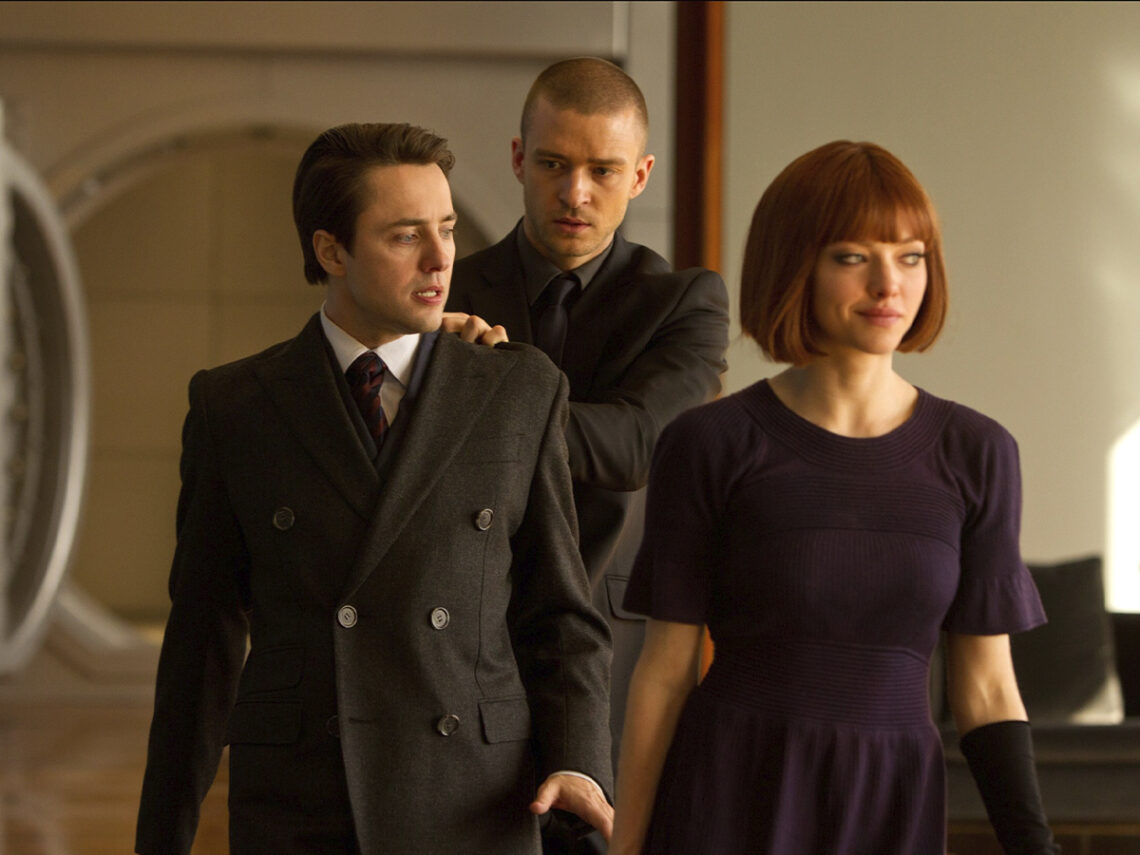Sometimes, a film comes along that everybody assumes can’t be anything less than great based on nothing but the concept and the talent attached. In Time was definitely among that number, at least until people had the chance to see it for themselves.
Writer and director Andrew Niccol initially announced himself as a formidable talent when he debuted by scripting and helming Gattaca, the thought-provoking sci-fi that seems to grow more prescient by the year since premiering in 1997. In a world where genetic inferiority prevents people from realising their potential, Ethan Hawke’s everyman acquires the identity of Jude Law’s superior specimen to take a shortcut towards reaching his self-perceived aptitude for greatness.
The film immediately marked Niccol out as both a hugely talented writer and accomplished director, and his follow-up illustrated that he wasn’t a one-hit wonder, either. His Academy Award-nominated screenplay for The Truman Show made him two-for-two in terms of acclaimed fantasies that were almost concerning in their prescience, which made In Time an even more tantalising proposition by default.
Set in the far-flung future of 2169, the gist of the movie is that time is literally money. The working classes become slaves to the grind for the sole purpose of staying alive, while the wealthy and well-to-do members of society have effectively been rendered immortal by having potentially indefinite amounts of time on the clock.
When Justin Timberlake’s everyman Will Salas saves Matt Bomer’s Henry Hamilton, he gets rewarded with all of the years he had on the clock. Unfortunately, the authorities believe he’s committed murder for the opportunity of living a whole lot longer, forcing him to go on the run to evade capture, prove his innocence, and ensure that he doesn’t die before the sands in his hourglass run out by more conventional means.
It’s the sort of pitch that has wide-ranging appeal and basically markets itself on the back of Niccol’s status as the director of Gattaca and writer of The Truman Show. To be fair, In Time was a decent-sized hit at the box office after coming within touching distance of $175 million in ticket sales, but it would be an understatement to say the execution was found painfully lacking.
He even called it “the bastard child of Gattaca,” with the filmmaker explaining how one hand ultimately ended up feeding the other. “At the time I thought the holy grail of genetic engineering, of course, is to find the aging gene and switch it off,” he said. “The implications were so huge that I thought, ‘That’s another movie.’ And it turns out, it has become another movie”.
It did become another movie, but it most certainly did not become another good movie. The last thing anybody was expecting from In Time was a bog-standard and formulaic sci-fi thriller, but that’s exactly what they got, with Niccol resolutely failing to make the most of a killer premise that opened the doors to plenty of thematic resonance.
Instead, it’s all treated with the utmost heavy-handedness, cliché regularly rears its head from coincidences and contrivances to monologuing villains, with cavernous plot holes gradually swallowing the narrative whole. Based on the sum of its parts, In Time should have been another sci-fi great from Niccol, but instead, it was the dampest and most forgettable of squibs.
